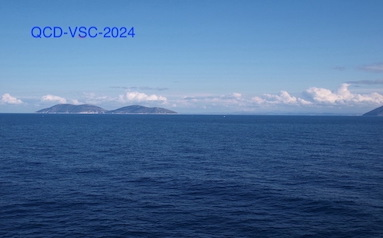Speaker
Description
Abstract. I will present a recent advancement that transforms the problem of decaying turbulence in the Navier-Stokes equations in $3+1$ dimensions into a Number Theory challenge: finding the statistical limit of the Euler ensemble. We redefine this ensemble as a Markov chain, establishing its equivalence to the quantum statistical theory of $N$ fermions on a ring, interacting with an external field associated with random fractions of $\pi$. Analyzing this theory in the turbulent limit, where $N \to \infty$ and $\nu \to 0$, we discover the solution as a complex trajectory (instanton) that acts as a saddle point in the path integral over these fermions' density.
By computing the contribution of this instanton to the vorticity correlation function, we derive an analytic formula for the observable energy spectrum—a complete solution of decaying turbulence derived entirely from first principles without the need for approximations or fitted dimensionless parameters. Our analysis reveals the full spectrum of critical indexes in the velocity correlation function in coordinate space, determined by the poles of the Mellin transform, which we prove to be a meromorphic function. Real and complex poles are identified, with the complex poles reflecting dissipation and uniquely determined by the famous complex zeros of the Riemann zeta function.
Significantly, the theoretical predictions for the energy spectrum, energy decay rate, and the velocity correlation in the inertial range closely match the results from grid turbulence experiments and recent DNS within data errors $\sim 2 \%$.
